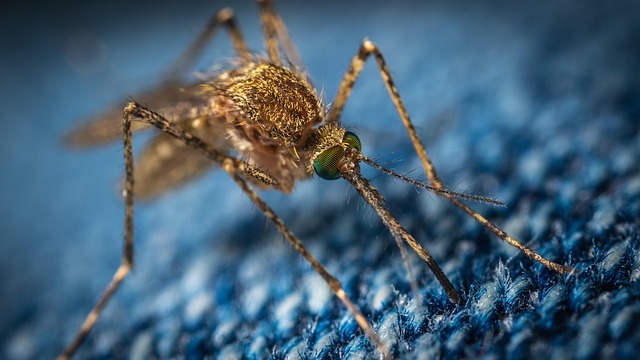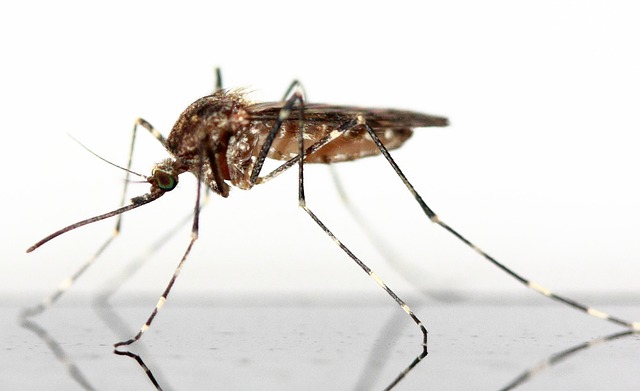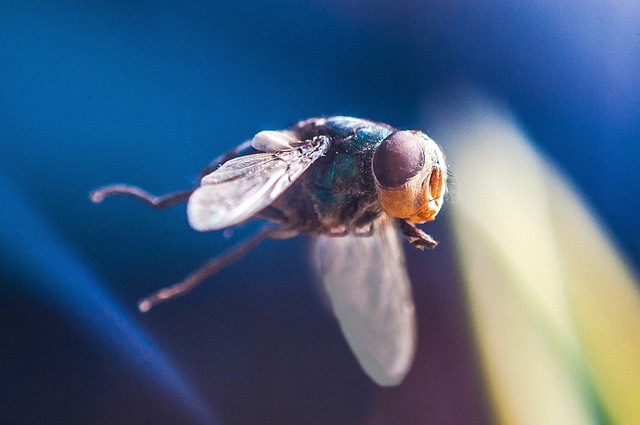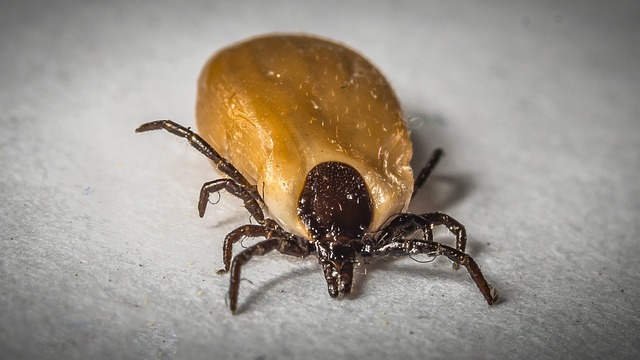This text provides a comprehensive guide to managing mosquitoes and ticks in outdoor spaces, emphasizing proactive strategies for homeowners. Key points include identifying and eliminating standing water sources, maintaining vegetation, using repellents, and adopting eco-friendly methods. Chemical treatments are also discussed, highlighting the importance of safety guidelines and label instructions. DIY solutions like mosquito traps are presented as cost-effective alternatives. Professional services are recommended for severe infestations. A strategic, seasonal approach to maintenance ensures continuous protection, with special emphasis on disease prevention during warmer months.
Tired of yard mosquitos and ticks? Take back your outdoor space with our comprehensive guide to effective mosquito and tick control. From understanding pest behavior and identifying breeding grounds to exploring natural repellents, chemical options, DIY traps, and professional services, we’ve got you covered. Learn seasonal tips for a mosquito-free yard and protect yourself from borne diseases. Discover the best approach for your needs and reclaim your outdoor enjoyment.
Understanding Mosquito and Tick Behavior: Know Your Pests

Mosquitoes and ticks are more than just pesky insects; understanding their behavior is crucial for effective mosquito and tick control. Mosquitoes, drawn to carbon dioxide, water, and heat, often breed in stagnant water sources like ponds or buckets. They actively feed on both humans and animals during the day and night, making them a constant nuisance during outdoor activities. Ticks, on the other hand, are primarily active during daylight hours and seek out hosts to attach and feed on their blood. They can be found in tall grass, shrubs, and trees, waiting for unsuspecting victims to pass by.
Knowing these habits allows homeowners to take proactive measures. For mosquitoes, removing standing water from around the yard and using mosquito repellents can significantly reduce their presence. For ticks, maintaining a mown lawn, using tick repellents, and regularly checking pets for any attached ticks are effective strategies. By combining these methods, you can create an environment less hospitable to mosquitoes and ticks, thus enjoying a more comfortable outdoor space.
Identifying Common Mosquito Breeding Grounds in Your Yard

Mosquitoes are attracted to standing water, so identifying and eliminating potential breeding grounds is a crucial step in mosquito and tick control. Common areas where mosquitoes breed include flower pots, birdbaths, buckets, old tires, and even small puddles left after rain. These stagnant water sources provide the perfect environment for mosquito larvae to develop into adult mosquitoes. Regularly emptying and cleaning these items can significantly reduce mosquito populations in your yard.
Additionally, consider the vegetation in your yard. Mosquitoes seek shade and shelter, so dense foliage and overgrown grass can provide hiding spots. Trimming trees, shrubs, and lawn edges can make your yard less inviting to these pests. Maintaining a well-manicured lawn and regular weeding will also help deter mosquitoes from laying their eggs, contributing to effective mosquito and tick control measures.
Natural Repellents and Their Effectiveness Against Mosquitoes

Natural repellents have gained popularity as an eco-friendly approach to mosquito and tick control, offering an alternative to chemical treatments. These natural solutions are derived from essential oils, plants, and other organic compounds known for their insect-repelling properties. Citronella, for instance, is a well-known scent that deters mosquitoes; it’s commonly used in candles and sprays. Another effective option is lemon eucalyptus oil, which has been proven to provide protection against mosquito bites, making it a popular choice among those seeking natural mosquito control methods.
Beyond essential oils, certain plants like lavender, mint, and marigolds are believed to ward off mosquitoes naturally. Planting these around your yard can create a protective barrier. Moreover, some people use fan-like devices that emit natural scents to keep mosquitoes at bay during outdoor activities. While their effectiveness may vary based on factors like wind and concentration, these natural repellents offer a safe and sustainable way to manage mosquito populations, appealing to those conscious of both health and the environment.
Chemical Mosquito Control Options: What You Need to Know

Many homeowners turn to chemical mosquito and tick control methods for effective pest management in their yards. These options often include insecticides, repellents, and other treatments that target mosquitoes specifically. When considering chemical control, it’s crucial to understand the various types available and their potential impacts. Different insecticides offer unique benefits and should be chosen based on the specific needs of your yard and local environmental considerations.
Common methods involve spraying, which can be done manually or through automated systems. These applications typically target resting mosquitoes in plants and areas where they breed. It’s essential to follow all safety guidelines and labels when using chemicals, as improper application may pose risks to human health and the environment. Additionally, many chemical treatments only provide temporary relief, requiring regular reapplication to maintain effectiveness against persistent mosquito populations.
DIY Mosquito Trap Ideas for an Effective, Cost-Savings Approach

Creating your own mosquito traps is an eco-friendly and cost-effective way to tackle these pesky insects. One simple DIY idea involves mixing water, sugar, and yeast in a container, which attracts mosquitoes due to the carbon dioxide produced by the yeast and the sweet scent of the sugar. This natural bait will draw them in, but you’ll need to place the trap away from your living areas to avoid any proximity to humans. Another innovative approach uses dish soap and water in a shallow container with a hole at one end, allowing mosquitoes to land and become trapped on the soapy surface, unable to escape.
These homemade methods are not only useful for mosquito control but can also be effective against ticks, which often accompany mosquitoes. By implementing these simple strategies, you can take matters into your own hands and create a more comfortable outdoor environment without relying heavily on chemical-based pest control solutions.
Professional Mosquito and Tick Control Services: When to Hire Experts

Professional mosquito and tick control services can be a game-changer for homeowners dealing with persistent pest problems. These experts are equipped with specialized knowledge and equipment to address infestations effectively, ensuring your outdoor spaces become more enjoyable. Hiring professionals is especially beneficial when dealing with large-scale or stubborn issues that over-the-counter solutions may not cure.
Mosquitoes and ticks can carry diseases, making timely intervention crucial for public health. If you notice an unusually high population of these pests in your yard, particularly near areas where people gather or play, it’s a sign to consider professional help. They employ eco-friendly methods, utilizing targeted treatments that minimize environmental impact while providing long-lasting protection.
Seasonal Tips for Maintaining a Mosquito-Free Yard

Maintaining a mosquito-free yard requires seasonal adjustments and proactive measures. During warmer months, mosquitos proliferate, so regular elimination of standing water is crucial for mosquito and tick control. Check flowerpots, birdbaths, and buckets for any stagnant water and empty or refill them frequently. Keep your lawn cut short, as tall grass can harbor these pests. Install outdoor lighting that avoids attracting insects, and consider planting mosquito-repelling herbs like citronella or lavender in strategic locations.
As the seasons change, so does the behavior of mosquitos. In fall, reduce the risk by ensuring all doors and windows are tightly sealed. Winter offers an opportunity to further strengthen defenses; repair any gaps around pipes and vents. Spring marks a new cycle, encouraging annual treatments like applying mosquito repellents or hiring professionals for comprehensive yard treatments. These seasonal tips ensure a consistent effort to keep your outdoor spaces enjoyable and pest-free.
Preventing Mosquito-Borne Diseases: Protecting Your Health

Mosquitoes are not just a nuisance; they can also carry and transmit diseases that pose significant health risks. Preventing mosquito-borne diseases is crucial for protecting yourself and your loved ones, especially during warmer months when these pests are most active. Implementing effective mosquito and tick control measures around your yard is an essential step in safeguarding your health.
Regularly eliminating standing water, which serves as a breeding ground for mosquitoes, can significantly reduce their population. Additionally, using appropriate repellents and protective gear while outdoors can provide a powerful line of defense against mosquito bites. By combining these preventive strategies with professional mosquito control services, you can create an environment that discourages these pests from thriving, thereby minimizing the risk of mosquito-borne diseases like Zika, West Nile, or even more severe conditions like malaria.
